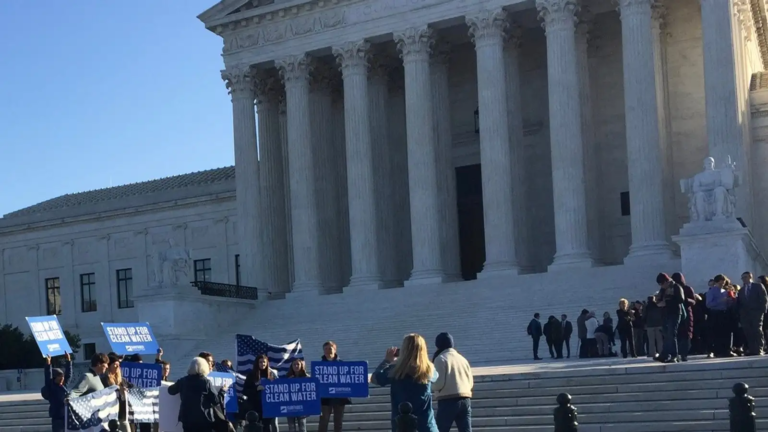Quartz | April 23, 2020
By Ephrat Livni
Call it a slightly belated Earth Day gift, if you will. Today, the US Supreme Court decided a case about wastewater pollution and the Clean Water Act, supporting environmentalists and rejecting the position of the federal government and County of Maui.
In a 6-3 decision written by Stephen Breyer, conservatives John Roberts and Brett Kavanaugh joined the court’s progressive minority in laying out a standard that makes it harder for polluters to get away with dumping waste into protected waters.
The dispute was about whether waste flowing from Lahaina Wastewater Reclamation Facility in Maui via groundwaters into the Pacific Ocean requires a permit under the Clean Water Act. The county and federal government argued that the statute’s permitting requirements only apply to pollutants released directly into the ocean, not indirectly.
The high court didn’t decide whether the county requires a permit, sending that aspect of the case to a lower court for reconsideration. However, the justices did lay out the appropriate test to apply to decide the issue, saying that pollution flowing indirectly from a particular source requires a permit if it is “the functional equivalent of a direct discharge.”
In other words, waste that ultimately goes into the Pacific Ocean from a specific location may well require a permit even if the pollution is strategically injected into groundwaters that aren’t covered by the federal environmental statute.
Notably, Kavanaugh wrote a concurring opinion citing the super conservative late justice Antonin Scalia’s reasoning in an earlier case regarding the Clean Water Act. Clarence Thomas, Samuel Alito, and Neil Gorsuch all dissented.
Kavanaugh said that he wrote the separate opinion to emphasize certain points. The first was the fact that his position aligned with Scalia’s take on the Clean Water Act. Specifically, polluters can’t “evade” the statute’s permitting requirements simply by discharging waste into waters that aren’t protected by law, knowing full well that this polluted groundwater flows into waters that are covered—in this case, the Pacific Ocean.
The Clean Water Act requires a permit for “any addition of any pollutant to navigable waters from any point source.” The key word is “from.” The question in this case is whether the County of Maui needs a permit for its Lahaina Wastewater Reclamation Facility.
No one disputes that pollutants originated at Maui’s wastewater facility (a point source), and no one disputes that the pollutants ended up in the Pacific Ocean (a navigable water). Maui contends, however, that it does not need a permit. Maui says that the pollutants did not come “from” the Lahaina facility because the pollutants traveled through groundwater before reaching the ocean.
While the court’s majority disagreed with the county’s take, only Kavanaugh made a point of the fact that he was adhering to Scalia’s previous analysis of the statute in question.
He explained that Scalia had reasoned that the Clean Water Act doesn’t just forbid “the addition of any pollutant directly to navigable waters from any point source.” Rather, the statute barred the “addition of any pollutant to navigable waters” according to Scalia. Thus, under Scalia’s interpretation of the law, “the fact that the pollutants from Maui’s wastewater facility reach the ocean via an indirect route does not itself exempt Maui’s facility from the Clean Water Act’s permitting requirement,” Kavanaugh wrote.
His concurrence also noted that the Clean Water Act doesn’t establish “a bright-line test,” which would make it easy to decide when a pollutant is considered to have come from a specific source. Kavanaugh blamed Congress for the vagueness, and defended the court’s decision, which he said “seeks to translate the vague statutory text into more concrete guidance.”
With this decision, the court also resolved a linguistic dispute that’s been brewing over the meaning of the word “from.”
Simple linguistics?
Today’s decision came after a lively and wide-ranging debate during oral arguments last year. “From” is a seemingly simple word that turns out to be quite complex in the context of the Clean Water Act.
Original Post: https://qz.com/1844095/kavanaugh-cites-scalia-in-scotus-opinion-supporting-environmentalists

